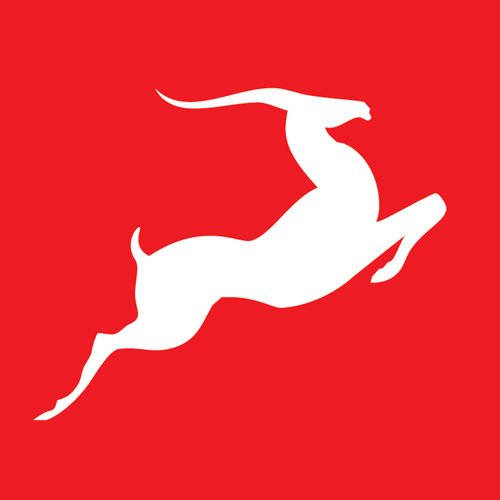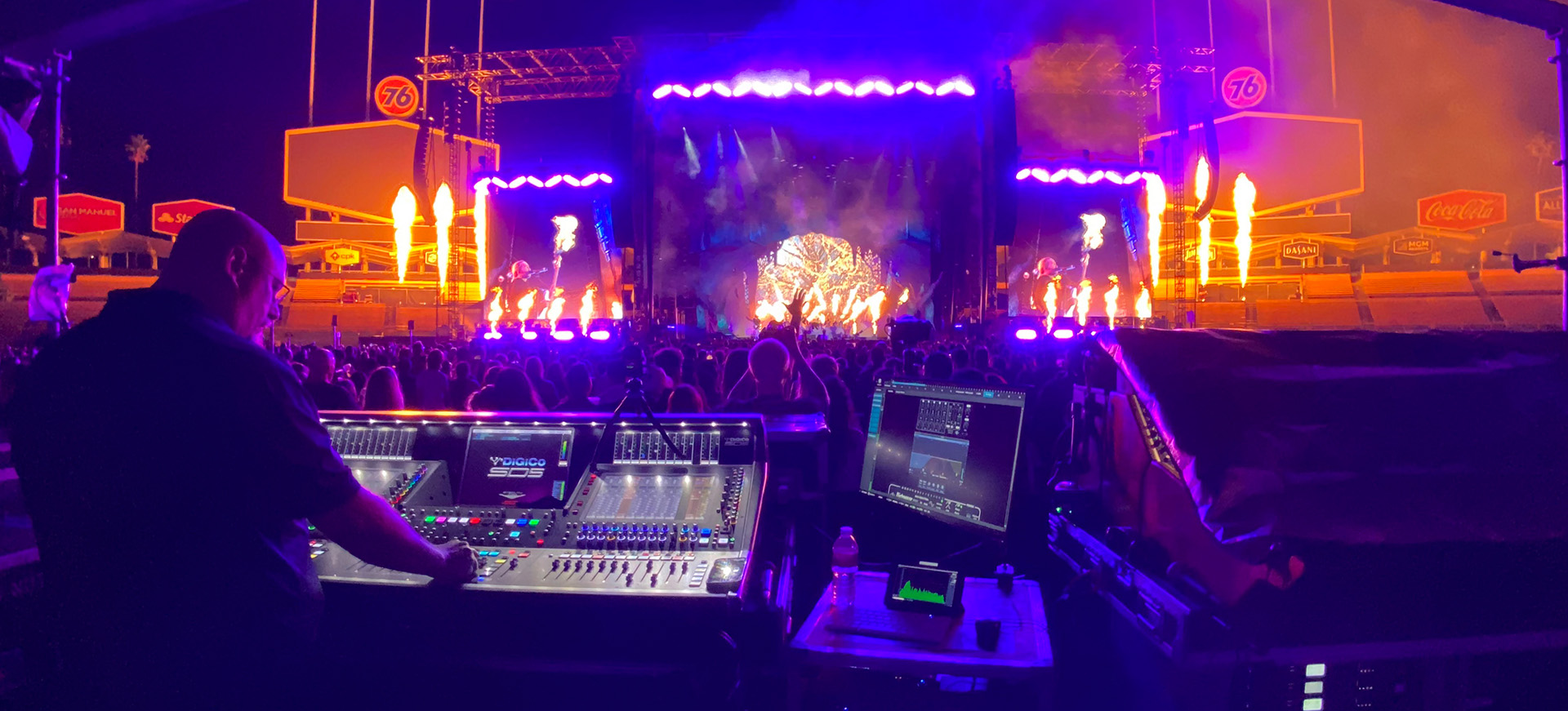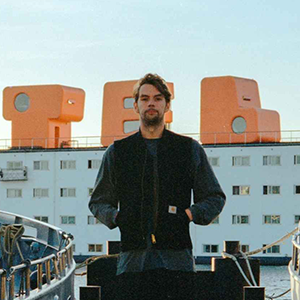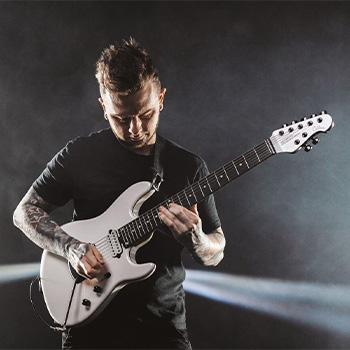Chad Olech is a live sound engineer who’s worked with legends like Linkin Park, Antrax, Alice in Chains, and Robin Thicke, navigating the evolution from analog to digital sound while building a hybrid approach, utilizing the Galaxy 64 Synergy Core.
How did you get started in sound engineering?
It started back in High School. I was an A/V nerd and was doing my best to try and be a musician. I would always help with the setup at shows, and eventually, after High School moved out to LA to become a “famous musician”, which obviously I failed at. lol. That however laid the groundwork for when I moved back home a couple of years later. I was playing in a local band and we were doing this show at a small club in Massachusetts we were on 1st or 2nd and my buddy band was closing the show, the venue’s FOH guy was drunk as could be by the end of my bands show and because I had some “studio” training, I kind of got elected to mix the show. From there, it was off to the races, I found something that I liked as much or more than playing music and I was much better at it than playing. After that night I landed a job at a local club, where I spent the next couple of years, working 7 days a week, mixing local bands. Eventually, I started getting hired by some of these local acts when they were playing other clubs and when they were doing showcase shows in NYC or Boston. One of those acts (NOK) ended up playing a show in Worcester MA with a NY Hardcore band called Orange 9MM who had just let their FOH engineer go. I ended up helping the local guy work through some feedback issues and the drummer noticed and after the show asked me for my business card (those paper things we all had back in the day with our numbers on them). I got a call about 2 days later and 3 days after that I was on a greyhound down to NYC to join them on their tour. From there it was all just climbing the ladder.
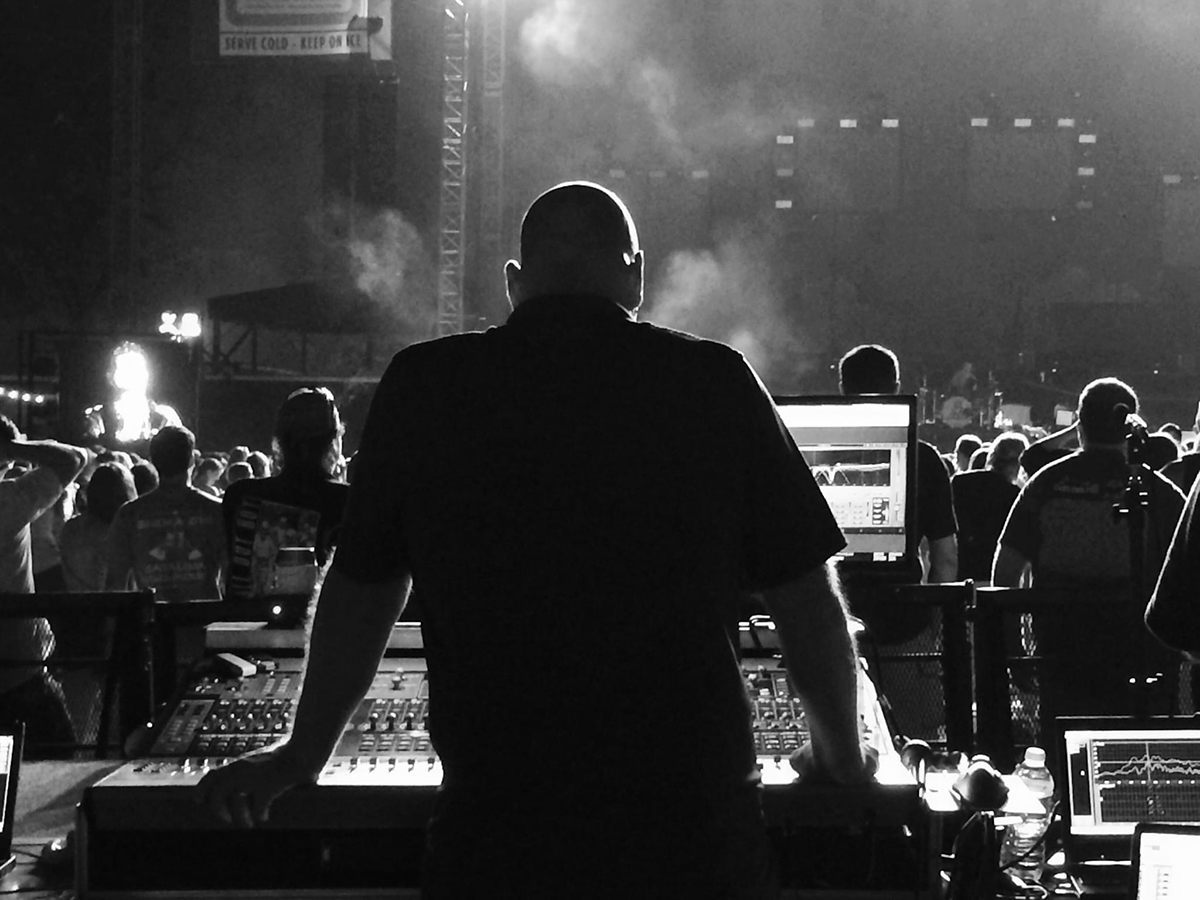
What drew you to working with live sound versus studio recording (or both)?
I am not sure anything drew me to live over studio other than just the fact that I happened to land a live gig first. I still do some stuff in the studio here and there and will probably do a bit more after I finish my mix room in my new house. At this point, I like them both equally and would be just as happy in either realm. Having said that, I am far more comfortable in the live world.
Looking at your impressive career, you've worked with some iconic bands such as Linkin Park, Alice in Chains, Anthrax, Deftones, etc. Can you describe a particularly memorable experience working with them?
I have been very fortunate in my career to work for some amazing bands and maybe more importantly some amazing humans. I think one of the most memorable experiences I ever had was back a bunch of years ago. I was hired to tour manage and mix Thin Lizzy, this version of Thin Lizzy was Scott Gorham on guitar, John Sykes on vocals and guitar, Tommy Aldridge on Drums, and a session player from LA on bass. I remember sitting at Center Staging in LA when Tommy and John walked in that was about the closest I have ever been to losing my cool and becoming a total fanboy. John and Tommy were on some of my favorite albums of the 80’s and I had to remind myself to stay professional several times over the first few days with them.
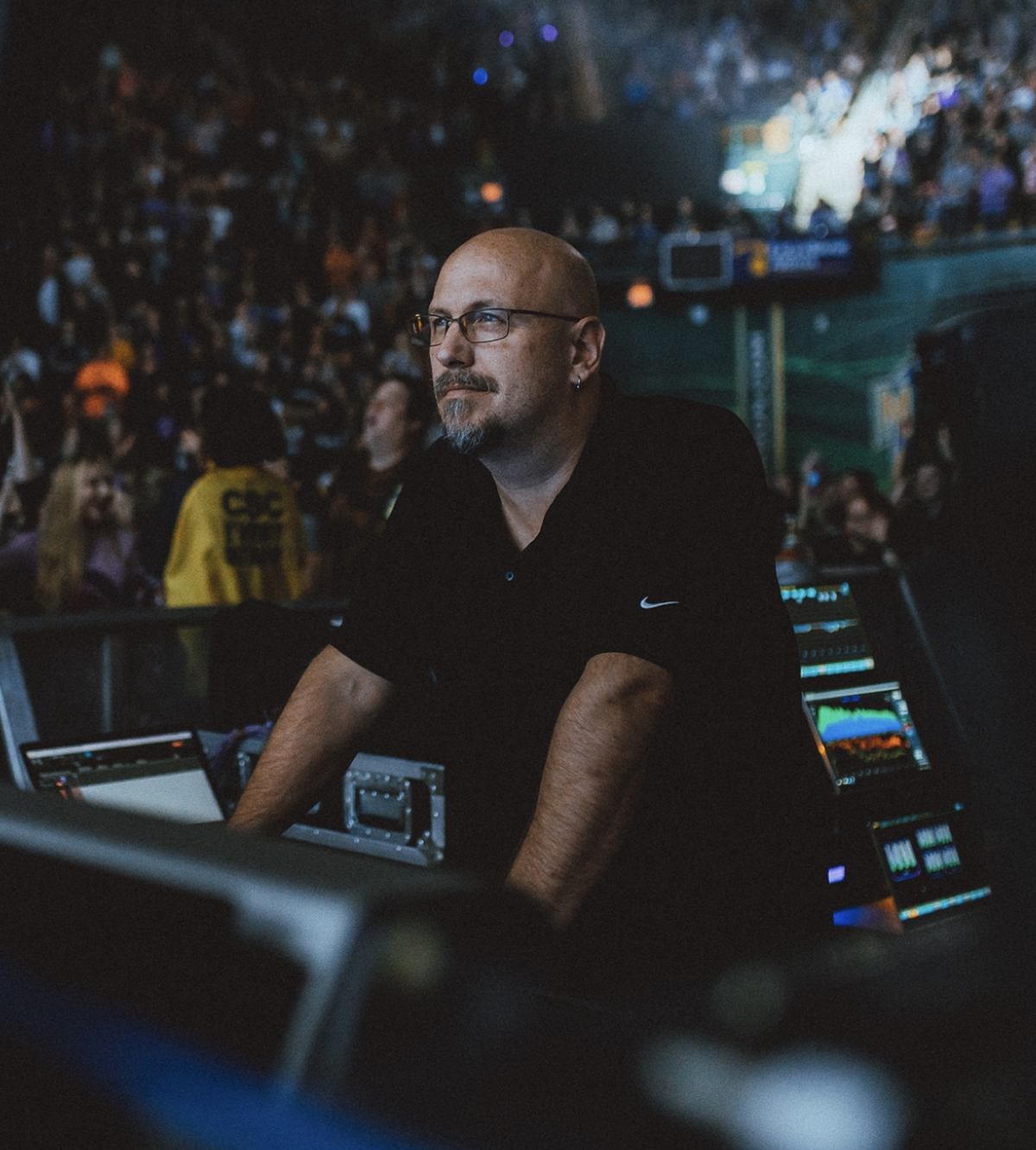
How do you adapt your sound engineering approach to best suit each artist's sound when working with such diverse artists?
I approach each artist the same. I listen to their albums, and, if I have a set list, I will concentrate most of my energy on those songs in particular and make my notes on effects and general mix notes. Then as soon as I can sit with the band (or whoever in/with the band makes the music decisions) and go over my notes and see where I landed compared to what they want and adjust my notes accordingly. I always do my best to make the live mix like a studio mix but more energetic.
Technology in the live sound industry has evolved rapidly. What are some of the biggest advancements you've witnessed in your career?
It’s funny that you’re asking this, as I think the more things change, the more they stay the same, and it’s all so cyclical. When I was starting, everything was analog and everyone had big racks of stuff. Then digital became all the rage, you know, we could all use one desk and just load a file. It made life easy lol. All that really turned into was all of us carrying our own desks and nothing changed, except a lot of us turned to plug-ins and “in-the-box” solutions. Now 15 or so years down the road from the live “digital revolution”, most of us are still on digital desks, but also back to the “out of the box” workflow, craving for our dynamics and effects. The advancement in the world of A/D converters and how good they sound and their routing flexibility I think is one of the biggest reasons we can now enjoy the best of both worlds.
Could you tell us a bit more about how you decided to update to Galaxy 64, and how are you planning to integrate it into your current live rig?
Back at the start of the year, I ended up buying several more pieces for my rack and essentially outgrew the A/D converter that I was on as it only had 32 I/O and I think my new additions brought me up to 34 or 36 that I needed. My options were to either double up and get another of the units I was using or look for something that had a bigger I/O count. In my research and asking around friends of mine in the industry, the Galaxy kept coming up as something I should check out. After a couple of weeks of kicking around different options I pulled the trigger on the Galaxy 64 and I am happy I did. Sonically it’s amazing, and it also has a killer word clock that I now use to sync my entire rig. It also has great versatility with the HDX outputs which will make it much easier to bounce between tour and studio setups with little hassle.
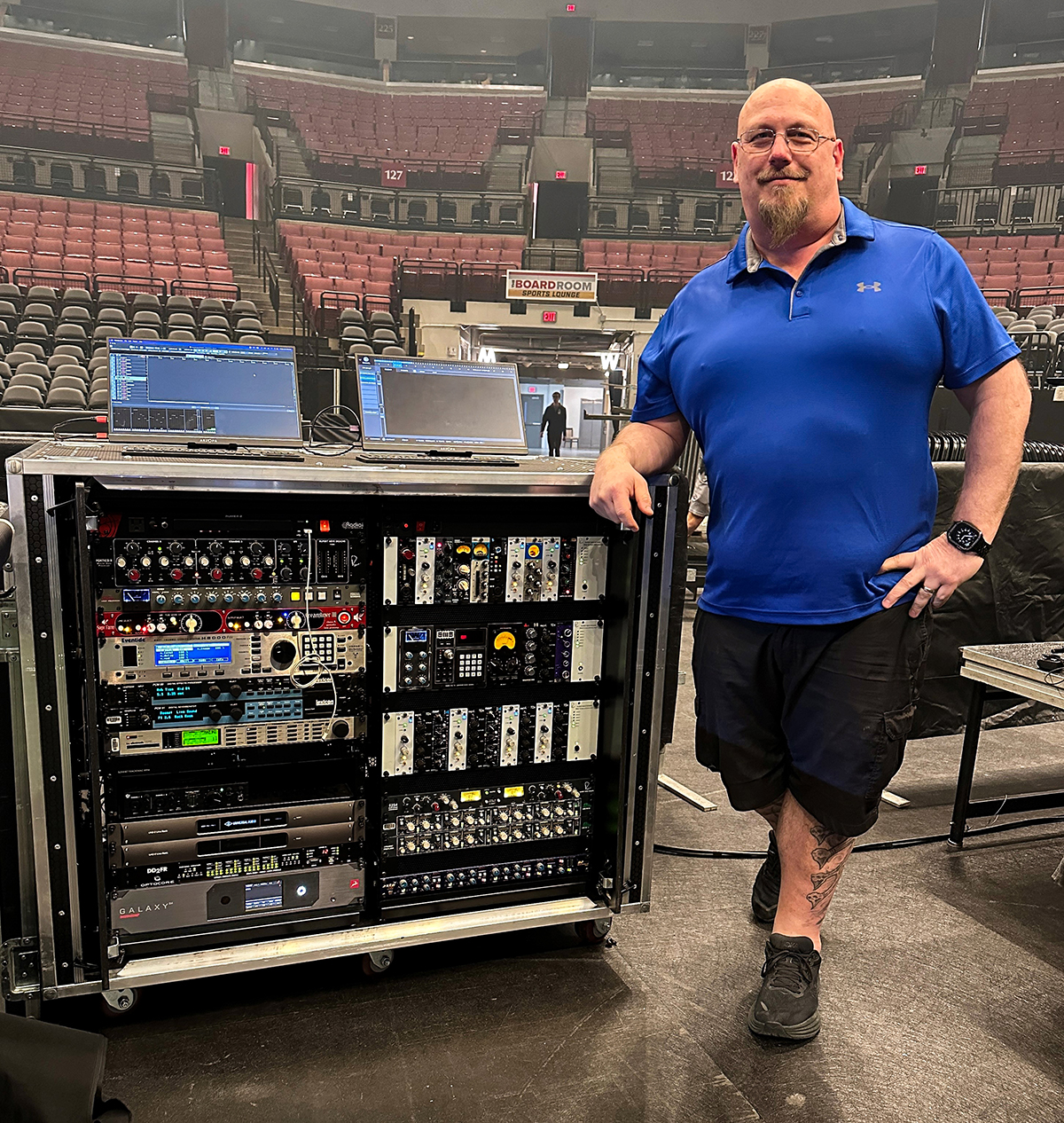
You mentioned routing flexibility and transparency of converters being a big thing for your workflow. What was your personal journey in building a hybrid setup?
I started adding outboards about 6 years ago, and as time went on I moved into more of the analog outboard units and some of the more classic digital outboard and have since more or less eliminated all the plug-ins from my current setup. Having used other converters in the past, I find the Galaxy to be a sonically superior product and the ease of use of its interface makes it a game changer for me. When you add to that how great the clocking is on it, I am not sure anything can beat it.
What do you still choose to use analog for? And how do you find the sound of the Synergy Core effects on the Galaxy alongside analog processing?
I find that most of the analog stuff just sounds better than its digital counterpart, I know there are some exceptions, but they are very few and far between I feel like. I also really enjoy having the actual knobs to use, there is something to be said for that I feel like. I got this unit on the last day of rehearsals so as of now I have not gotten into the use of the Synergy stuff, I hope to try these out at the next rehearsals.
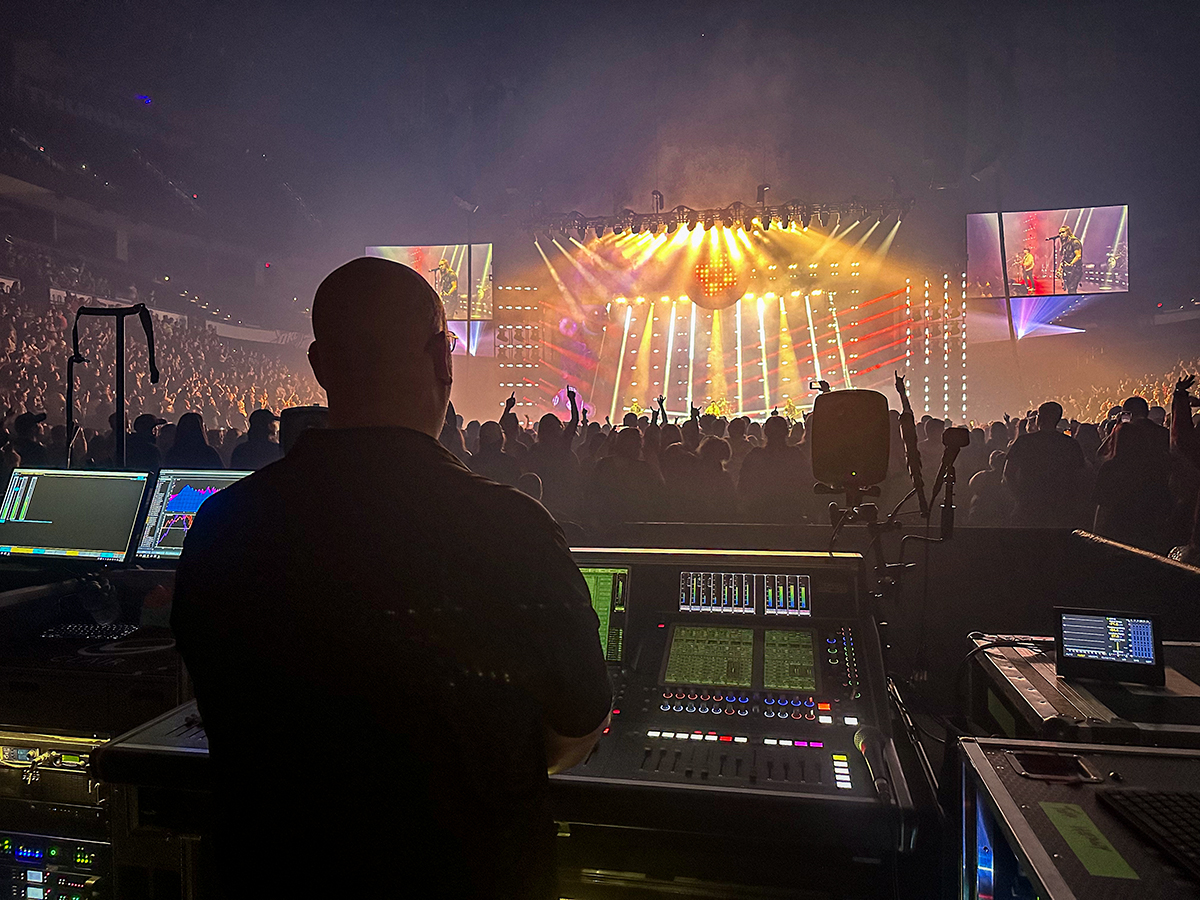
Looking ahead, what are you excited about in the future of live sound engineering?
I am looking forward to seeing what some of these smaller independent companies are going to do with the vintage gear clones. There are a few of them out there now who are making amazing products, and now that I have a bunch of extra I/O, I can bring more of it out on the road with me.

